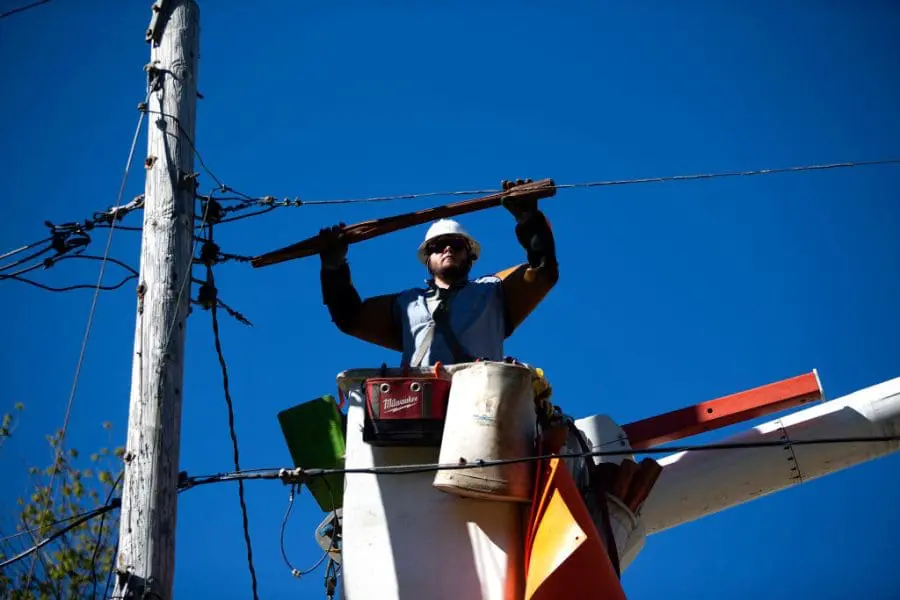Politics
People of Maine Reject Publicly Owned Energy, But the Fight Is Not Over

A Disinformation Campaign Led by Energy Lobby Causes Maine Voters to Reject Question 3
Maine voters recently said no to publicly owned energy after a massive propaganda blitz by energy companies Central Maine Power (CMP) and Versant. Question 3, which would have authorized the state to take over these private utilities and replace them with the consumer-owned Pine Tree Power Company, was rejected by a seventy-to-thirty margin.
Maine Governor Janet Mills Vetoes Bill to Put Pine Tree Power on the Ballot
Pine Tree Power, which did not make the ballot in 2021, faced opposition from Democratic governor Janet Mills who vetoed a bipartisan bill to put the question to a popular vote.
Opponents Fear Political Control Will Lead to Corruption and Mismanagement
Opponents of Question 3 argued that political control over public energy utilities would lead to corruption and mismanagement. However, other power systems in cities like Sacramento, Omaha, and Eugene have had elected boards for decades with positive results.
Pine Tree Power Would Save Money and Enjoy Tax Exemptions
Pine Tree Power would save residents money by not having to send millions of dollars in dividends to the current owners of CMP and Versant. As a public entity, it would also enjoy an exemption from federal and state taxes and have access to lower-cost credit.
Maine Residents Dissatisfied with Current Energy Providers
Residents of Maine have experienced poor reliability and high rates from CMP and Versant. These utilities consistently rank low in customer surveys and have sent disconnection notices to thousands of customers for unpaid electricity.
Maine's Energy System Sustained by Monopolies and Limited Oversight
CMP and Versant are monopolies that seek higher rates and lower costs for larger profits. While they are regulated by the Maine Public Utilities Commission, the commission has limited resources compared to the massive multinationals they oversee. This allows for private extraction with only minimal public oversight.
While Maine's Defeat Is a Setback, History Shows Victories Against Energy Giants Are Possible
Although the defeat of Question 3 in Maine is a setback, history has shown that victories against energy giants are possible. The federally owned Tennessee Valley Authority and the municipally owned Los Angeles Department of Water and Power both faced fierce opposition but ultimately succeeded in providing public power. More recently, the Build Public Renewables Act was passed in New York, allowing the state-owned New York Power Authority to build and operate large-scale renewable energy plants.
Overall, the fight for publicly owned energy in Maine and across the nation is not over. Pine Tree Power should be seen as a cause not yet won, and supporters should continue to push for a more accountable and affordable energy system.
Hello there! I’m Jeremy Ramirez, your go-to guy for all things content marketing and social media at NewsScroller. Currently residing in the vibrant city of Omaha, NE, I’m living my dream of combining my passion for journalism with the dynamic world of digital media.
I’m a proud graduate of the University of Nebraska, where I honed my skills and earned a degree in journalism. My college days were filled with endless learning, coffee-fueled study sessions, and the excitement of discovering the power of storytelling.
Post-graduation, I found my calling at NewsScroller, where I currently lead a team of creative minds in shaping compelling content strategies. Every day is a new adventure here – crafting stories, analyzing trends, and engaging with our vibrant online community.
When I’m not immersed in the digital world, you’ll find me cherishing moments with my amazing wife and our two energetic boys. Our family is completed by Dagwood, our adorable Pug, who always brings smiles to our faces.
Traveling is my escape and inspiration. I love exploring new cultures, tasting local cuisines, and capturing memories through my lens. As a speaker at social media events, I enjoy sharing insights and learning from fellow enthusiasts.
Curious about content marketing strategies or the latest social media trends? Or maybe you want to exchange travel stories? Feel free to reach out. I’m always up for a chat and eager to connect with like-minded individuals. Let’s navigate the exciting world of digital media together!
Want to know more or say hi? Drop me a message anytime!